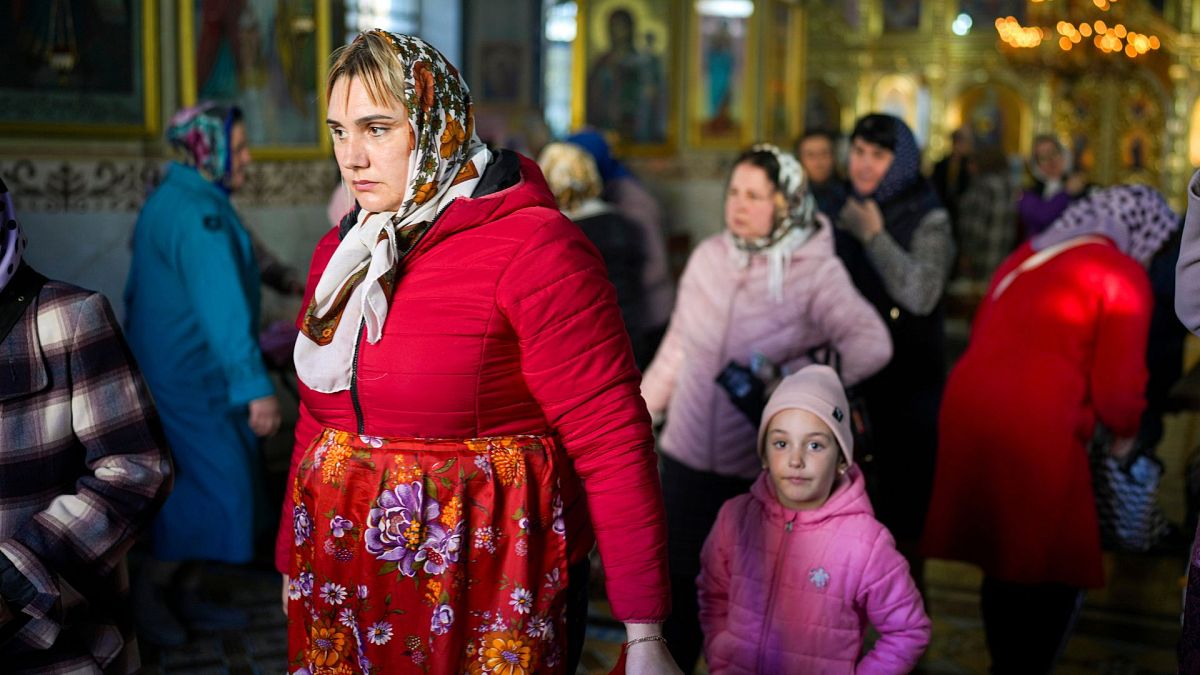Moldovan leaders have implemented energy-saving measures and assured residents of temporary gas reserves, but fears of a humanitarian crisis in Transnistria remain.
On a cold morning in Chisinau, postal worker Petru Murzin expressed fears of a harsh winter, warning that many Moldovans will face “no heating, no light” amid an impending energy crisis.
Russia’s state-owned Gazprom is set to halt gas supplies to Moldova on 1 January over a disputed $709 million (€680 million) debt, a figure dismissed by Moldova’s pro-Western government as confected for political reasons.
“I feel that we’ve entered a crisis that is quite difficult to resolve … which worries me greatly,” Murzin told the Associated Press.
“Price increases are one thing, but when there is no gas at all, that’s something entirely different,” he added.
The gas cutoff threatens to cripple Moldova’s largest power plant, Kuciurgan, located in the separatist Transnistria region.
The plant supplies electricity to much of Moldova, and its shutdown could plunge the region into darkness.
Officials declared a state of emergency earlier this month, anticipating severe shortages. Moldovan Prime Minister Dorin Recean accused Russia of using energy “as a political weapon” and dismissed the alleged debt, saying it was “invalidated by an international audit.”
President Maia Sandu criticised the Kremlin’s actions, describing them as “energy blackmail” aimed at destabilising Moldova and undermining its EU aspirations.
Humanitarian concerns
Sandu assured that the country has sufficient gas supplies “for the heating season” as well as measures “to ensure uninterrupted electricity supply”.
However, she warned of serious humanitarian implications in Transnistria, where residents are expected to travel to Moldova for basic necessities.
“It is important to remain united, show solidarity, and trust in Moldova and its people. And to use energy rationally,” she added.
Moldova has responded to the crisis by implementing energy-saving measures, including reducing lighting in public and commercial buildings and shifting energy-intensive operations to off-peak hours.
For residents like 30-year-old Luliana, who works remotely, power and heating shortages could have a direct impact.
“We’re afraid, but we’re happy that there’s no snow and the temperatures aren’t that low,” she said.
Experts warn the crisis could exacerbate tensions between Chisinau and Tiraspol, Transnistria’s de facto capital.
Cristian Cantir, an associate professor of international relations, said Moscow may exploit the situation to amplify political and social pressures in Moldova ahead of the 2025 parliamentary elections.
Moldova has taken steps to diversify its energy sources since Russia’s invasion of Ukraine, reducing its dependence on Gazprom.
But the energy dispute, coupled with Russia’s alleged “hybrid war” tactics of funding protests and disinformation campaigns, underscores the challenges Moldova faces in balancing domestic stability with its European ambitions.
Murzin, the postal worker, anticipates a significant influx of people from Transnistria crossing the border when the shortage takes effect.
“I think cars will line up for several kilometres at the border. Many people will come here, hoping for warmth.”
Additional sources • AP
Read the full article here


